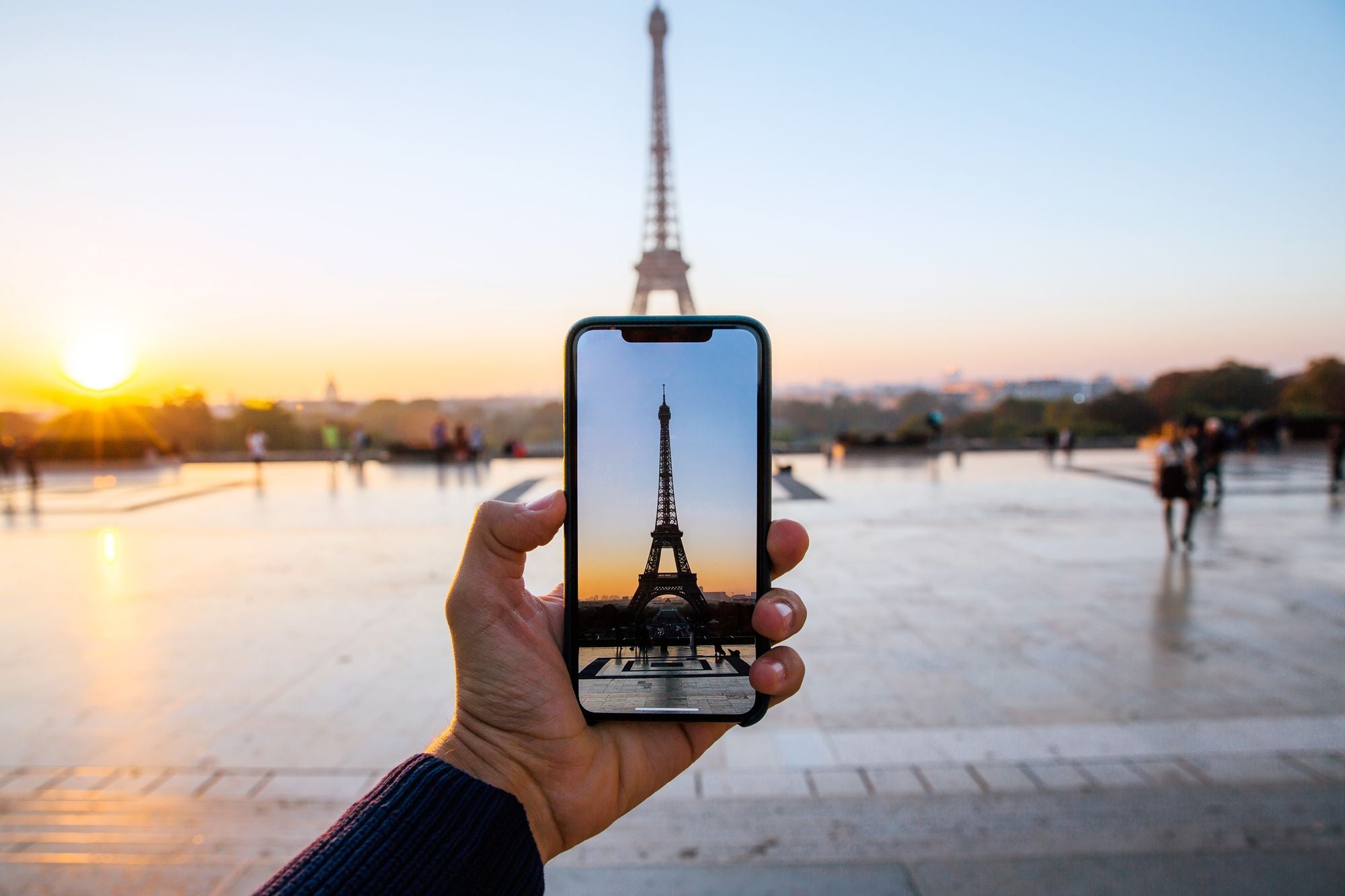5 Phone Hacks for Travelers That Will Help Make Your Next Trip a Whole Lot Easier Learn these tricks to turn your phone into the best personal assistant ever.
Opinions expressed by Entrepreneur contributors are their own.

I travel a lot. And by a lot, I mean really a lot. I've flown more than two million miles and spent more than 1,000 nights in hotel rooms. Did I mention that I travel a lot? Here are some things I've learned about my phone's ability to make my travels a whole lot smoother that I hope you can use on your next trip. Happy trails!
1. Turn your calendar into a Swiss Army knife.
If you're not using a calendar that's synced between your phone and laptop or is cloud-based (like on Google) then stop reading and go figure that out right now, dinosaur.
Your calendar is a very powerful and valuable tool which can solve a lot of problems, but only if you use it properly. First, mobile calendars automatically adjust for the time difference when you travel, showing your appointments, flights and reservations in the local time (the time in the place you are in). So, if you put in all your flights, appointments, etc., into the calendar, you'll always know what's what. If you're working on the road overseas, and have to be on conference calls back in the U.S., the appointments you made in your calendar before you left will show in the local time, so you won't get confused and miss calls and deadlines.
Pro tip: Add in all the details of your flights and hotel reservations, as well as the phone number and addresses of your destinations into the notes for each appointment. Isn't that a lot of work? Nope. Most confirmation emails from hotels and airlines include a link or an attachment which do it automatically with a click. When you're done, finding your way to your next appointment is a single touch on the address in your calendar -- the navigation app opens automagically -- and all the information about your next activity will be right there. No more frantically searching your emails for addresses and phone numbers.
Related: How to Stay Productive and on Task When Traveling for Work
2. Add a +1 to all your U.S. contact numbers.
When you're overseas, the numbers in your phone may not work correctly, or not at all, because every country has its own unique way of dialing phone numbers. Adding +1 (1 is the country code for the U.S.) before all your important U.S. phone numbers in your mobile address book will usually fix all of that so that you're able just to use your phone as you normally would. Otherwise, you're going to have to learn the prefix ("exit code") for each country you visit, because even your home number is an international call when you're overseas.
Pro tip: Make sure your personal contact information is stored correctly (including the +1) and complete. Sharing your contact card is a very tech-savvy look when people "ask for your number" -- just be sure there's nothing stored in there you don't want to share (like your home address or passwords -- yes, some people do that). You can create a second contact card ("personal") if you want to have one with all your secret deets.
3. Upgrade your passcode.
If you don't use a complicated passcode to unlock your phone, you're asking for trouble. Besides having all your personal information, photos and who knows what else in it, your phone is the most perfect way for thieves to steal your identity. Thieves can use your phone to send and receive texts and emails posing as you, and can reset every password you have: banks, social sites, medical records, your video doorbell, webcams…Plus they can send pictures to your ex that might cause even bigger problems. And don't forget about the codes to unlock your laptop or tablet you might leave behind in the hotel while you're out. In the age of the cloud, access to any of those devices presents the same open doorway to making your life miserable.
Pro Tip: If you're using fingerprint or FaceID to unlock your phone, good for you, but remember when you first bought the phone and set the password to "0000" because you never use it? Oops. Your phone's password bypass just as easily unlocks it, so make it something complicated as if your life depends on it.
Related: 7 Entrepreneurs Who Built Businesses Off Their Love of Travel
4. Get your airline and hotel apps.
Before you leave, download the apps for your hotel and airline and sign in. The apps will instantly update you about flight delays and gate changes and often offer local tips and events during your stay. Most importantly, you'll be able to make quick modifications to reservations on the move, so changing a flight or extending a hotel stay is a little less painful.
Pro tip: These apps also include the proper international phone number to reach reservations and customer service, as well as the direct number to your hotel.
5. Your camera is good for more than selfies.
If your phone is not from the bronze age, and you have location services turned on, the photos you take with your phone are precisely geotagged. This allows you to find a place you visited, or find out more information about something you might have seen, using the location embedded into the photo's metadata. (Don't worry about the tech -- the phone does the work for you). Forgot to write down the name of that awesome locals-only pub? Opening a photo you took will allow you to find the location, and most of the time, the exact name.
Pro tip: Remember that GPS works best outside, so if it's somewhere you really want to remember, be sure to take a photo when you're leaving.











